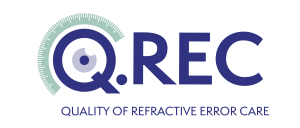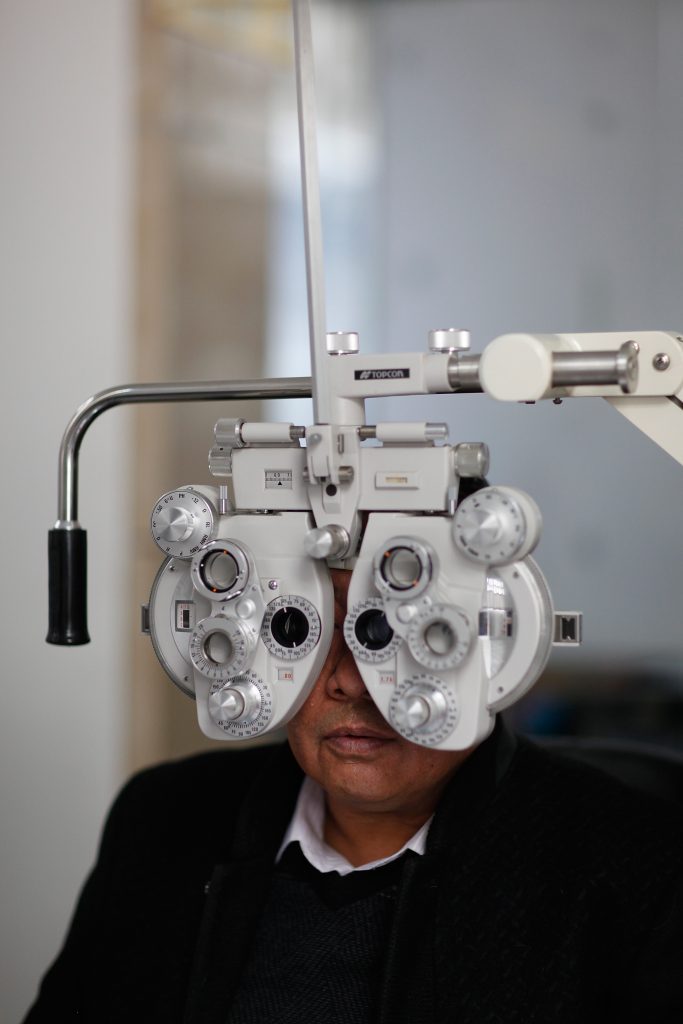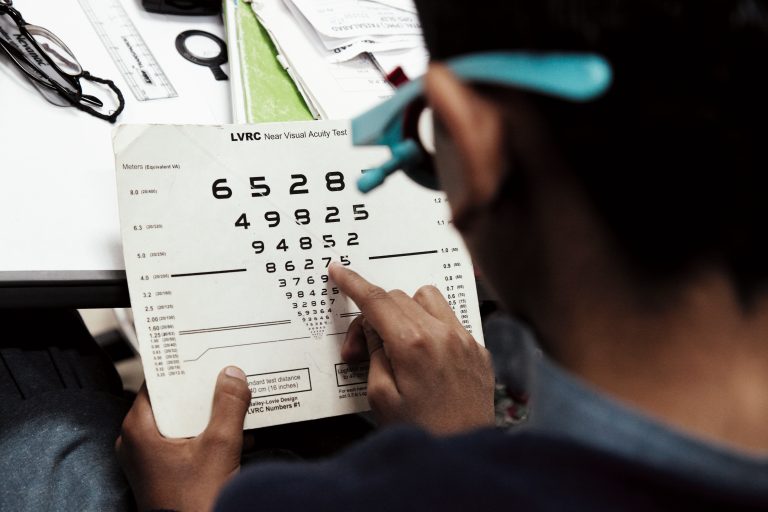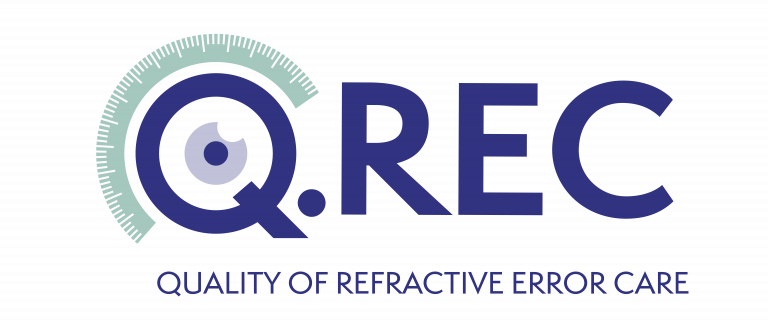

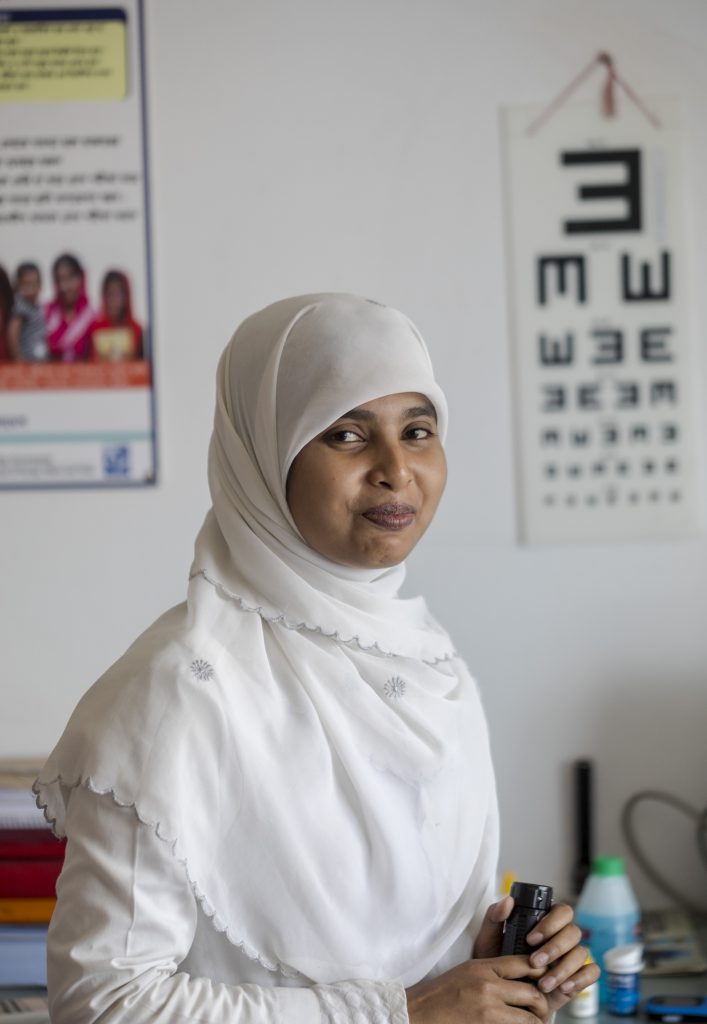
What is Q.REC?
Q.REC is a standardised way to measure the quality of refractive error care. It uses trained undercover patients—or Unannounced Standardised Patients—to visit optical services and observe whether the refractive error care provided is optimal.
The goal of a Q.REC study is to provide information on how to improve eye care services so that everyone gets the glasses they truly need.
Why do we need Q.REC?
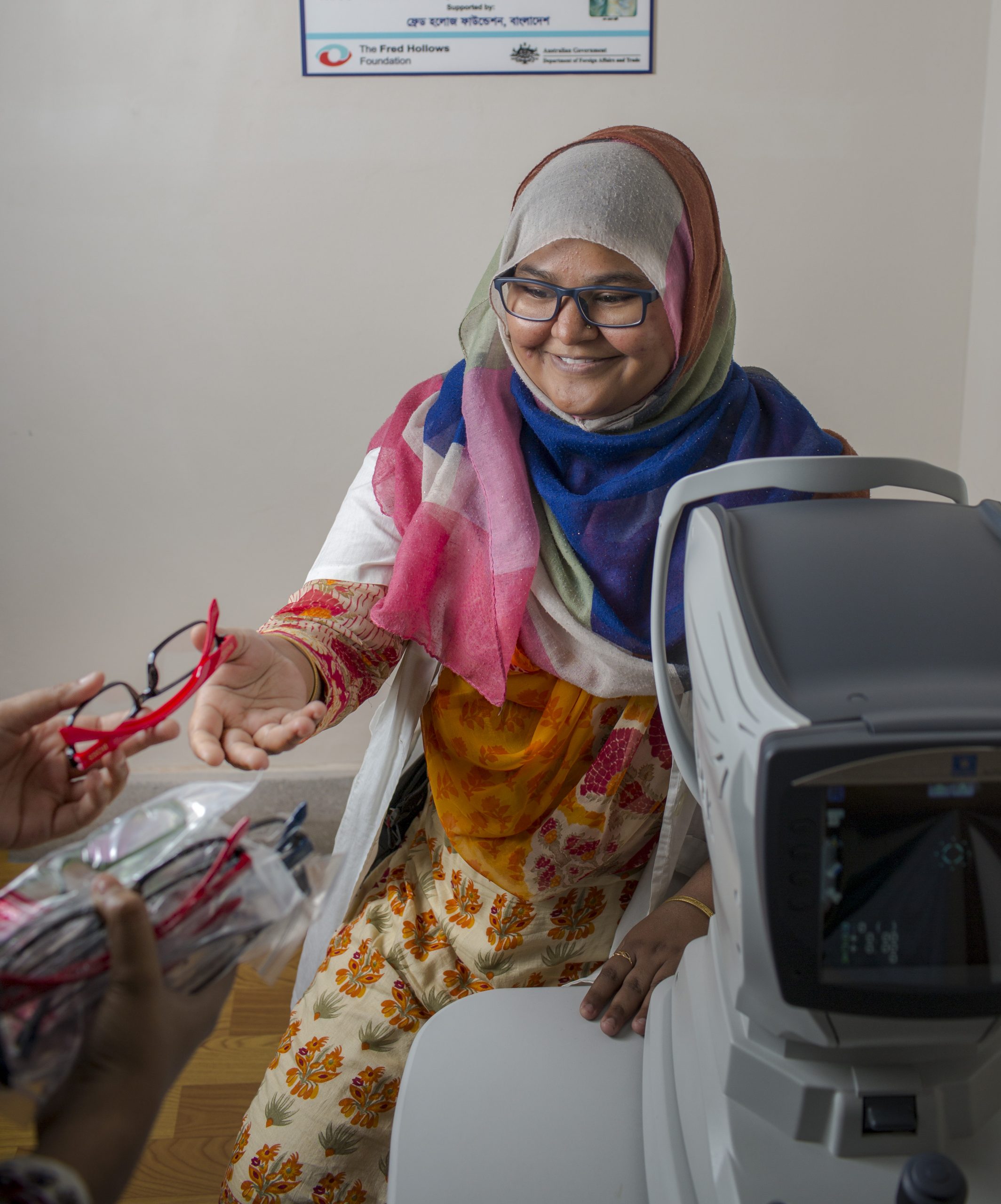
The need for quality refractive error care
Uncorrected refractive errors impact 671 million people worldwide. In 2021, the UN General Assembly pledged to improve eye health for 1.1 billion individuals with vision impairment by 2030, identifying effective refractive error care (eREC) as a critical benchmark for progress. Achieving these ambitious goals requires reliable indicators to assess service quality and monitor outcomes, driving meaningful and measurable change.
Uncorrected Refractive Error Globally
671
million
people live with vision loss due to uncorrected refractive error
Q.REC Resources
Who uses the results from a Q.REC study?

Policy & Government
Q.REC provides policymakers with real-world data to assess refractive error care quality and develop evidence-based responses.
Training & Curriculum Providers
Q.REC provides evidence-based recommendations to enhance training programs and curricula.
Healthcare Providers
Service providers can use Q.REC to evaluate care quality, and identify areas for improvement.
NGOs & Aid Organisations
Organisations can measure program effectiveness, justify funding decisions, and demonstrate impact.
Research Institutions
Researchers can use Q.REC to study refractive error care and evaluate interventions.
Steps for Implementing a Q.REC Study
1. Planning
Assess feasibility, map providers, calculate sample size, secure approvals, and prepare budgets and timelines. Engage key stakeholders and decision-makers on the purpose and scope to encourage buy-in and ownership.
2. Recruitment
Identify optical services and screen potential USPs.
3. Training
Provide study optometrists and USPs with structured training programs, conduct quality assurance checks.
4. Data Collection
USPs visit optical stores systematically, dispensed spectacles are checked for quality.
5. Analysis
Use standard Q.REC indicators to prepare meaningful insights about the factors that influence the quality of refractive error care.
6. Advocacy & Dissemination
Share findings with stakeholders and use results to drive improvements in refractive error care.
About
The Q.REC Toolkit is an initiative led by The Fred Hollows Foundation. Focused on addressing the leading global cause of correctable vision impairment, Q.REC identifies gaps in care and drives improvements in clinical practices and policies. Q.REC empowers governments, and healthcare providers to deliver effective, equitable, and people-centered eye care, advancing progress toward Universal Health Coverage and the Sustainable Development Goals.
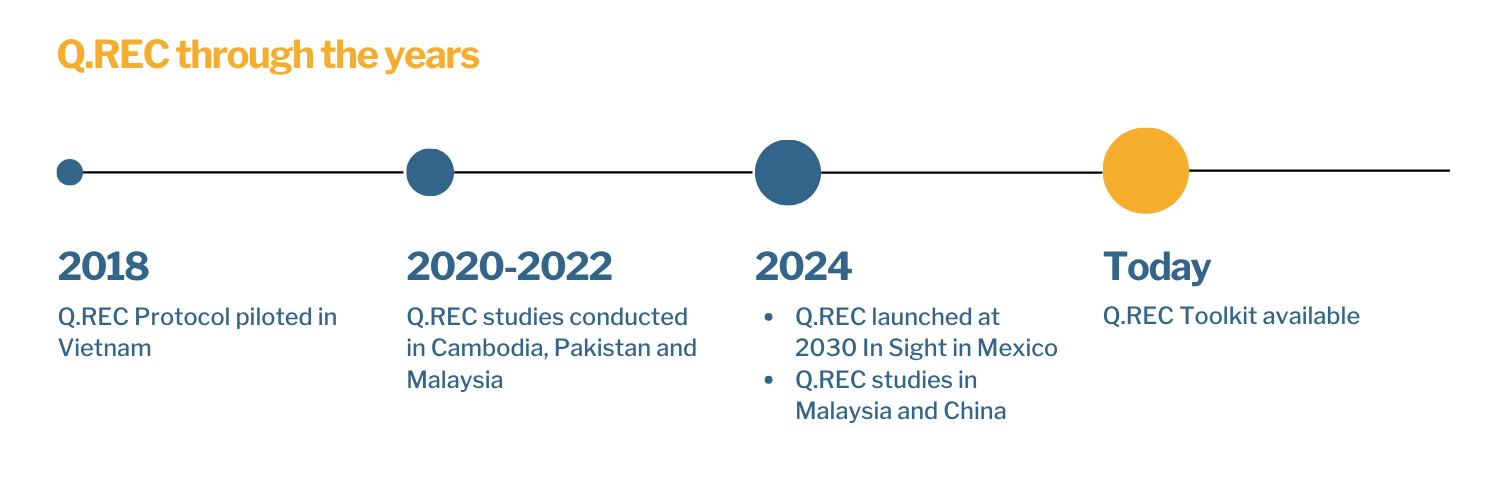
Connect
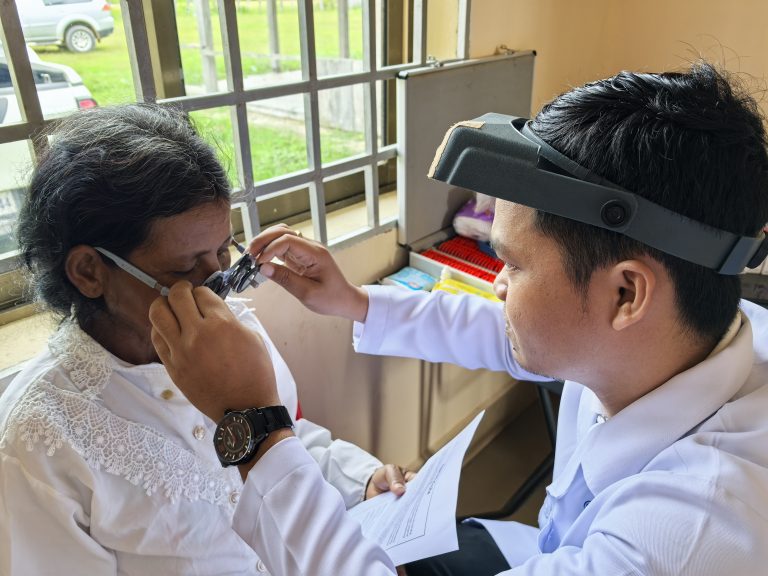
For all inquiries: hello@q-rec.org
